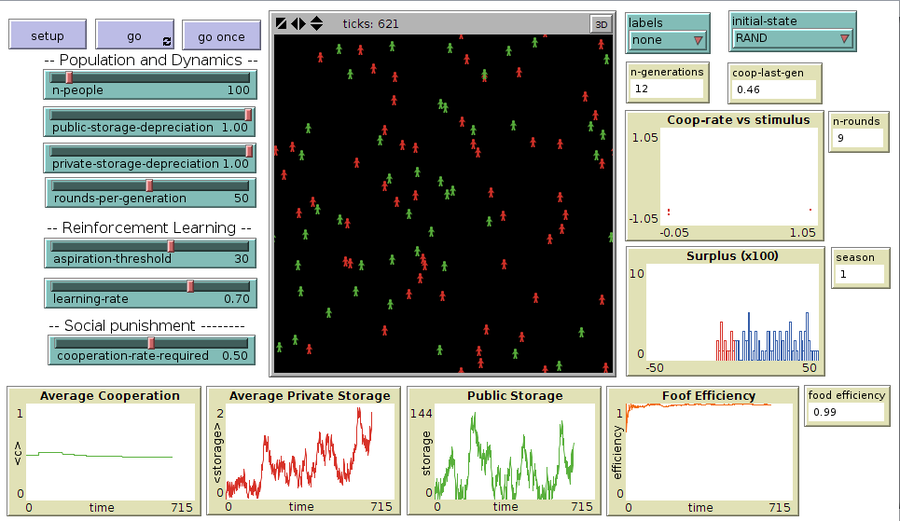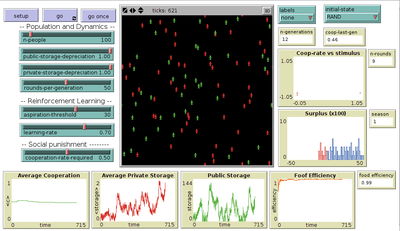“Food for all” (FFD) 1.0.0
“Food for all” (FFD) is an agent-based model designed to study the evolution of cooperation for food storage. Households face the social dilemma of whether to store food in a corporate stock or to keep it in a private stock. The model is a stylized abstraction of the main factors that we consider to drive the evolution of cooperation in storage:
-
The efficiency of common and private storage
-
The underlying learning process through which a successful strategy is reinforced from one generation to the next (modelled as the change in the probability to cooperate)
-
A social norm controlling access to corporate storage (modelled as the degree of intolerance towards defective behaviour)
-
The probability of having enough food to satisfy household needs, based on procurement alone (i.e., without considering storage)

